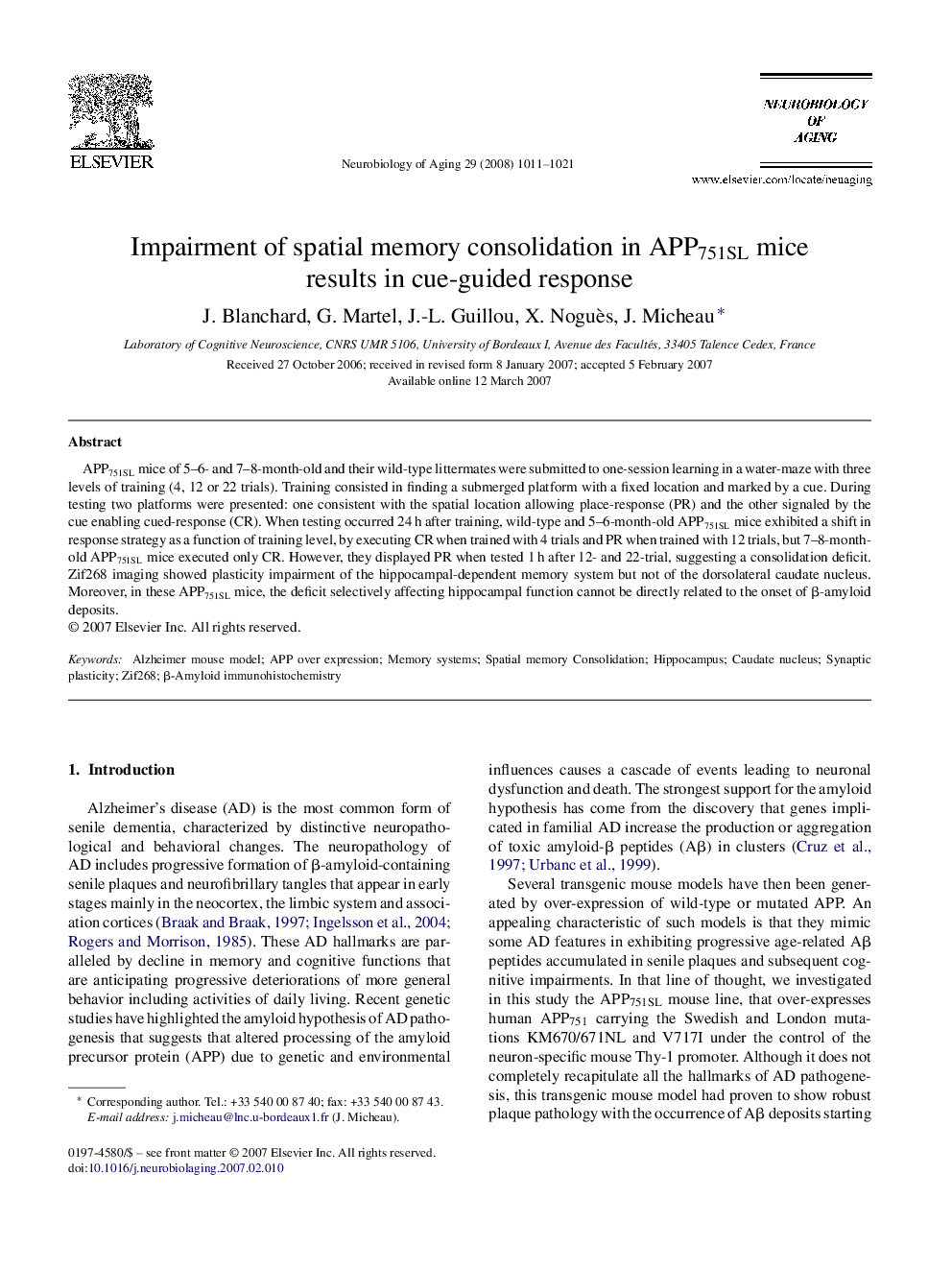| Article ID | Journal | Published Year | Pages | File Type |
|---|---|---|---|---|
| 331237 | Neurobiology of Aging | 2008 | 11 Pages |
APP751SL mice of 5–6- and 7–8-month-old and their wild-type littermates were submitted to one-session learning in a water-maze with three levels of training (4, 12 or 22 trials). Training consisted in finding a submerged platform with a fixed location and marked by a cue. During testing two platforms were presented: one consistent with the spatial location allowing place-response (PR) and the other signaled by the cue enabling cued-response (CR). When testing occurred 24 h after training, wild-type and 5–6-month-old APP751SL mice exhibited a shift in response strategy as a function of training level, by executing CR when trained with 4 trials and PR when trained with 12 trials, but 7–8-month-old APP751SL mice executed only CR. However, they displayed PR when tested 1 h after 12- and 22-trial, suggesting a consolidation deficit. Zif268 imaging showed plasticity impairment of the hippocampal-dependent memory system but not of the dorsolateral caudate nucleus. Moreover, in these APP751SL mice, the deficit selectively affecting hippocampal function cannot be directly related to the onset of β-amyloid deposits.
